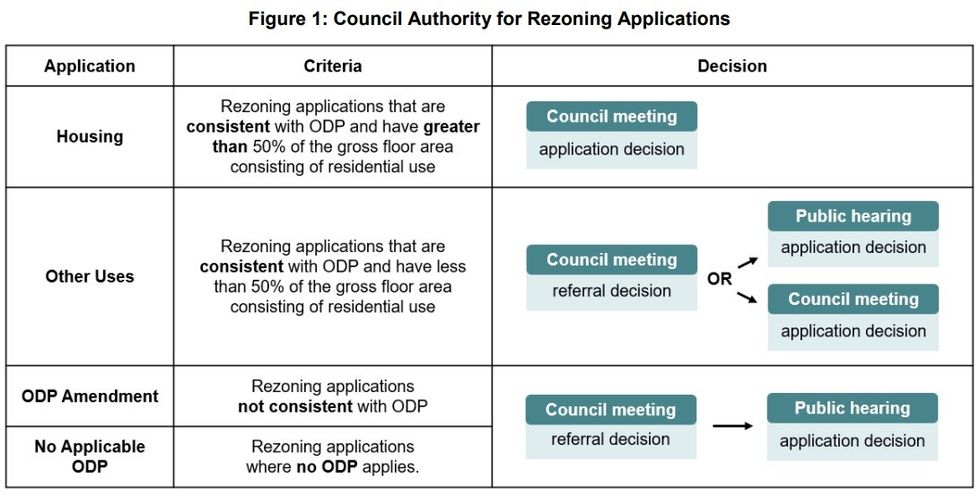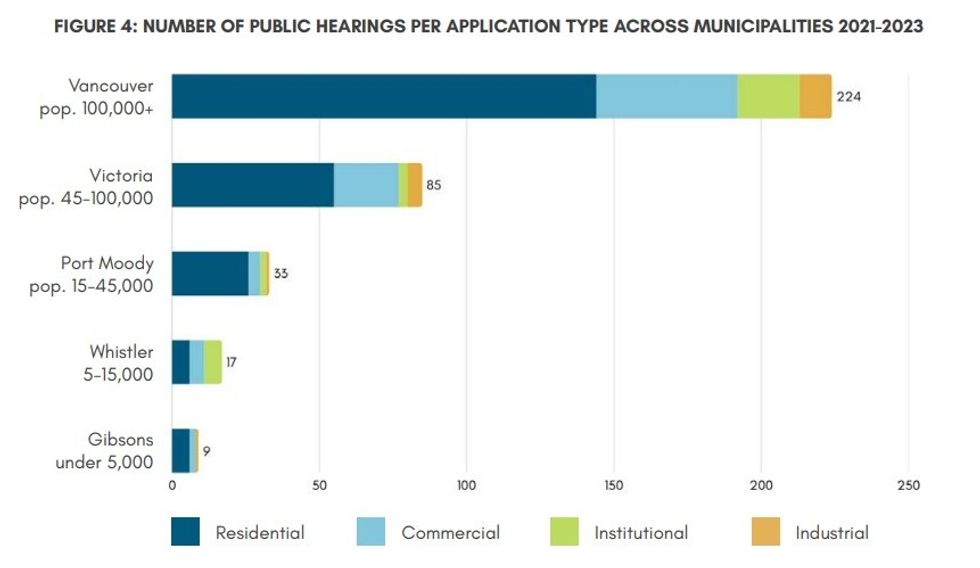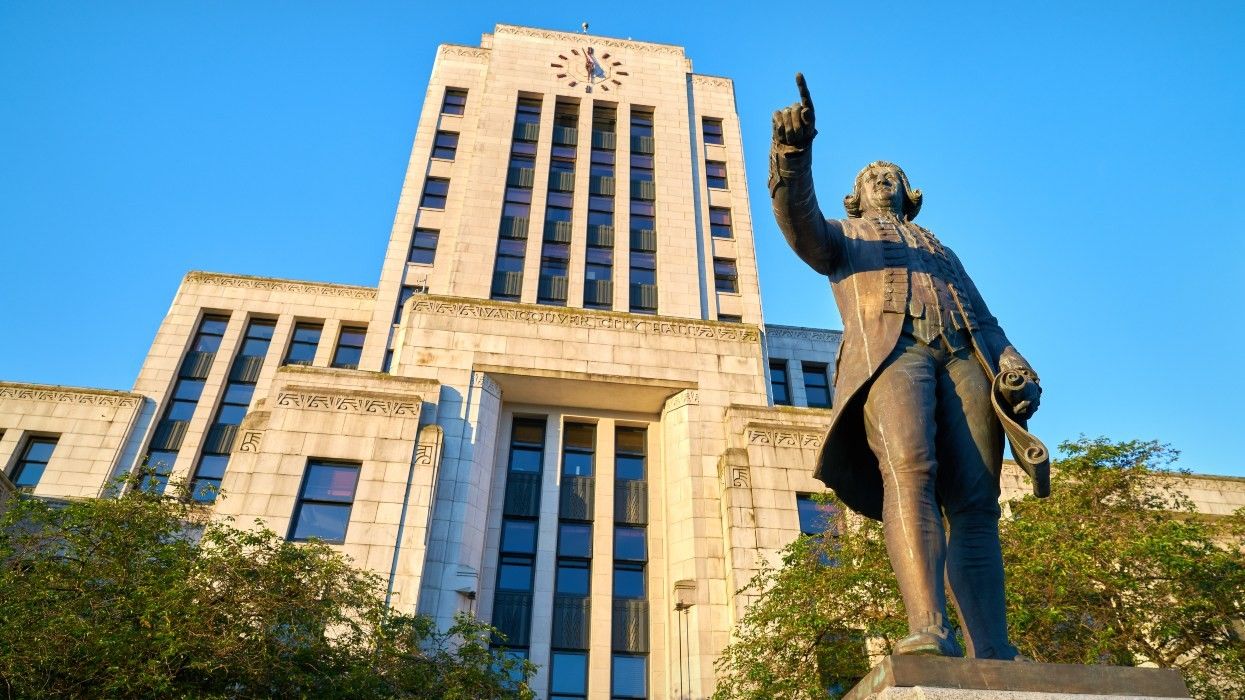Some call it a scourge that is counter-productive amidst a housing crisis. Others say it is democracy in action. Neither stance really mattered on Tuesday, however, as Vancouver City Council approved its new Development Approval Procedure (DAP) By-law — effectively eliminating public hearings for many projects — because they were required to do so by the Province.
Under the previous policy framework, any development project proposing a land use that is not allowed under the existing zoning is required to first submit a rezoning application. In Vancouver, rezoning applications have historically taken at least a full year to process. The City then holds a public hearing where residents can chime in on the proposal, after which Council makes its decision on the application.
After the rezoning application is approved — and it is important to note that it seems they are almost always approved, regardless of how much opposition there is — the developer can then proceed to submitting a development permit application, followed by a building permit application.
Under the newly-approved Development Approval Procedure By-law, rezoning applications for projects that are compliant with the City's Official Development Plan (ODP) and have over 50% of the proposed floor area as residential use will go directly to Council for a decision when ready, and public hearings are prohibited for such projects.
For rezoning applications that are ODP-compliant but have less than 50% of the proposed floor area as residential use, Council will have the authority to refer the application to either a direct decision or a public hearing.
For rezoning applications that are not compliant with the ODP, or where there is no applicable ODP, the approval process will be as it was previously, with public hearings required.

This change is the result of Bill 18, which was introduced by the Province in April 2024 and requires the City of Vancouver to consolidate all of its various policies and by-laws pertaining to the development approval process into a single Development Approval Procedure By-law that defines the processes for approvals and for amending the Official Development Plan — referred to in most other municipalities as the Official Community Plan (OCP).
The City of Vancouver is currently in the process of establishing an Official Development Plan, based on the Vancouver Plan, because it does not currently have a city-wide ODP and instead utilizes a collection of area-specific ODPs. The City anticipates that an interim city-wide OPD will be adopted in June 2026, which means most rezoning applications will still be subject to a public hearing until then, as they have for the past year. (The City amended its Procedure By-law in July 2024 to introduce the new process for rezoning applications and is now consolidating that by-law into a new DAP by-law.)
In addition to the aforementioned changes, however, a series of other changes are also being introduced. The most notable change is pertaining to rezoning enquiries, which is currently an optional step in the rezoning process where applicants can get early feedback from the City before they submit a formal and full rezoning application. In the future, applicants that are seeking to amend an ODP or propose something that departs from existing policy will be required to first submit a rezoning enquiry.
"In recent years, some applicants have opted to bypass the (voluntary) enquiry stage and submitted applications that are inconsistent with Council adopted policy, said City staff in the report outlining the DAP By-law. In some cases, this has resulted in protracted negotiations and processing to resolve issues. This requirement is intended to reduce downstream issues, set clear expectations on process, and improve collaboration between staff and applicants. Staff are currently developing a range of enquiry options to support the range of needs reflective of development proposal complexity. Enquiry will remain a voluntary step for all other rezoning applications that are generally consistent with an ODP or Council adopted policies."
This kind of process already exists in many other BC municipalities, where applicants first submit a "pre-application" that the City and/or Council provides feedback on, allowing developers to make changes earlier on in the development approval process, rather than having to go back to the drawing board months or years down the line.
Other changes include the ability for the City to cancel a rezoning application or rezoning enquiry if information or documents have not been submitted within a period of six months, which the City says is to ensure that staff can focus on diligent applicants and complete applications.
For the general public, the City will be required to provide advance public notice when rezoning applications are set to be considered by Council without a public hearing. The City has not outlined how much advance notice will be given, but other municipalities have already been doing this for several months and the notice has typically been about one month.
The Truth About Public Hearings
On May 15, the City of Vancouver held a public hearing for the Commercial-Broadway Safeway redevelopment by Westbank and Crombie REIT, after the project had gone through several rounds of revisions over the past half-decade. The project has become a lightning rod and over 900 people submitted written comments — 433 in support, 464 in opposition, and 27 classified as "other." People also came out in droves to speak at the public hearing, which ran for approximately four hours and had to be turned into a multi-night public hearing that continues again on June 10.
Not every rezoning application draws this much attention and emotion, but the truth of the matter is that public hearings are much better in theory than in reality.
Simon Fraser University's Morris J. Wosk Centre for Dialogue is leading an ongoing initiative called "Renovate the Public Hearing" that was created to "research and pilot changes to local government land use public hearing requirements as a means to enhance upstreamed, value-based public engagement, streamline affordable housing approvals and other land use processes, and strengthen community building and democratic culture."
"Public hearings in British Columbia were established to provide a public voice in the land use decision-making process and are one of the tools local governments use to practice core elements of democracy," the group says. "However, they are also spaces where many of the current challenges that threaten our democracy — such as polarization and an erosion of trust in institutions — are sometimes visible. BC's public hearings, in their current format, are often viewed as a performative battleground exercise that leaves people angry and apathetic toward their local government. In some cases — such as hearings over affordable housing projects — the open microphone format invites speeches that can raise racial and class tensions and increase polarization."

A report the group published in April found that public hearings are often difficult to access (be that because of time, distance, or language barriers); are over-representative of those who oppose a project; are often held too late in the approval process to impact decision-makers; and are largely ineffective for opponents as 92% of items that make it to a public hearing are approved.
Despite the fact that public hearings have a low chance of making an impact, the process also does not work out well for developers, as it adds time to a development approval process that is already lengthy. A 2023 study conducted by the Canadian Home Builders' Association (CHBA) found that the average approval timeline in Vancouver was 15.2 months. (A more recent edition of the same study found that the average was down to eight months, but attributed the improvement to the market downturn resulting in lower application volume.)
For builders, time directly translates to money, including more costs associated with property taxes, consultants, and financing. In the aforementioned report, Renovate the Public Hearing pointed to a 91-unit mixed-income housing project in Surrey that was quoted as having a building cost of $36.6 million in 2021. The project was rejected by Surrey City Council, but was later approved in 2023 by a new Council, by which the quoted cost had ballooned to $57.5 million.
Instead of the existing system, Renovate the Public Hearing's top recommendation was to reorient public engagement around ODPs/OCPs, a much earlier and more comprehensive planning stage, which was the hope when the Province introduced Bill 18. In Vancouver, residents will have that opportunity later this year when the City hosts public engagement for the Official Development Plan.





















